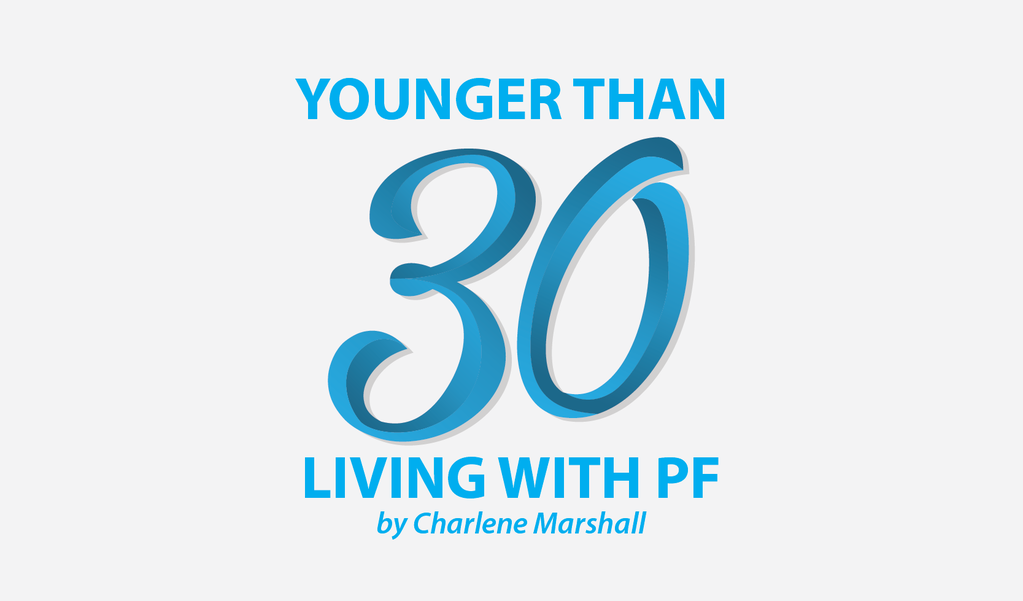Since Diagnosis, IPF-related Anxiety Has Increased


Before my diagnosis of idiopathic pulmonary fibrosis (IPF) nearly 18 months ago, I would have never considered myself to be an anxious person. The older I get and the more people I meet, including those who are sick and those who aren’t, I’m realizing how common it is to battle a form of anxiety.
I now consider myself extremely lucky to have never really dealt with anxiety as a child, although I would have thought that I had many reasons to feel anxious when I was younger. Before my IPF diagnosis, I don’t remember a time when I had unusual behavior or symptoms that may have been manifesting themselves from anxiety. In general, I never really felt worried, stressed, or concerned about much.
As a young adult, I still feel lucky to only be experiencing illness-related anxiety, for the most part. What I mean by this is that the things I am doing now or feeling worried about are a result of having a chronic illness and the lifestyle changes that have resulted from it.
In general, I still wouldn’t say that I’m an anxious person, but as I have gotten older and come to realize the signs of anxiety, I think I am experiencing a little bit of it due to my IPF diagnosis.
In discussions with friends and family who are bravely battling anxiety, some to the point that it cripples them and keeps them from doing things they normally enjoy, I realize that some of the things I worry about are actually caused by anxiety about certain things. I have been trying really hard to be conscientious about those worries and to pinpoint exactly where they may stem from.
Here is a list of things I have come up with, and in hindsight, when reviewing this list, I realize that all of these things are related directly to living with IPF. I would love it if anyone has suggestions about how to combat these worries and fears.
- Constantly having lists on the go! Since being diagnosed with IPF, I have to remember many things, such as taking my medications, keeping appointments, monitoring my oxygen levels and ensuring that my portable oxygen tanks are always filled. These are just a few things. Lately, I find that I always need a to-do list for everything, whether it is related to my diagnosis or not. For example, just last night I made a note in my phone to remember who I needed to text and email back, and this morning, I had to make a list of things I needed to pack for the weekend. I also always have a grocery list on the go, or things I need to pick up. If I don’t have a list going, I feel anxious that I am going to forget something, and I think this is because I have so much on my mind.
- In keeping with the theme of lists, another thing I am anxious about is always having backup items in the house that I need. This applies to groceries or other household items that I use daily, and the reason I want to have them is that when I need these things, I may not feel well enough to go out and pick them up.
- I worry that my portable oxygen tanks will run out. I think this one is easy for others to understand. If I need to go out, then my portable tanks need to be filled and ready to go. I can’t breathe without my supplemental oxygen right now, and the anxiety of not having them or fearing that they will run out can be crippling.
- After battling both a viral and bacterial infection for several weeks this past month, I realized how much havoc it can wreak on my lungs. This doesn’t help with my anxiety around people who are coughing and sneezing. When I am out in public, I wear masks and take precautions. But I am extremely anxious that I will catch someone’s cold and make my lungs worse.
- Because of having added expenses that are purely illness-related, I find that I am constantly anxious about my finances. This comes from having medication expenses, parking and gas costs to go to appointments, breathing devices and other needs directly related to my illness.
To other IPF sufferers: Do you have any new anxieties that stem from your diagnosis or that have surfaced as a result of your illness? If so, I’d love to hear how you have worked your way through them. Thanks for reading.
***
Note: Pulmonary Fibrosis News is strictly a news and information website about the disease. It does not provide medical advice, diagnosis, or treatment. This content is not intended to be a substitute for professional medical advice, diagnosis, or treatment. Always seek the advice of your physician or other qualified health provider with any questions you may have regarding a medical condition. Never disregard professional medical advice or delay in seeking it because of something you have read on this website. The opinions expressed in this column are not those of Pulmonary Fibrosis News or its parent company, Bionews Services, and are intended to spark discussion about issues pertaining to pulmonary fibrosis.








Colleen
My biggest anxiety is being there for the big milestones of my daughters life. She's 19 and I'm hoping to see her graduate college, get married and if I'm lucky a grandchild. I have good days and bad ones with this and it hits me most at night in bed, my mind keeps thinking. I deal with it and move on until the next time it hits.
Ray Hastings
Hello Charlene
i have IPF and have most of the worries ylou bring up. A few things i have determine
1. AS to the worry about having the disease, to my knowledge no one has been cured by worring so it is counterproductive . the way i look at it is that after 6 years, i am sill alive so there is the possibility that a cure will be found. There is a lot research being done with several products that show promise so a cure is possible.
2. O2 is a problem. for a while i also used the bottles which were a major pain. I solved this by buying an O2 concentrator that made a huge difference. My wife and I enjoy traveling and the concentrator makes travel much easier. they are expensive but well worth the cost.
3. Finances: you should take with an attorney that specializes in disability cases to see if you qualify for any of the government programs such as social security or medicaid.
4. overall, you should take advantage of the time you have left. do things that you enjoy while you can. My wife and I enjoy cruises is we have taken about 5 or 6 in the past couple of years. We have both reitired so we have time to cruise.
we have a two year old grandson that is the sunshine in our lives. we baby sit with him two days a week which gives us a lot of quality time with him.
expertise is one of the best things you can do to improve your health. Walking is good.
I guess the best thing i can say is make the best of the time you have left. It is difficult but as soon as you can accept and move on with you life, the happier you will be.
MrMaalox
Xanax................4,mg Daily and Anafranil 50mg nightly....helps with the anxiety.
John Gainer
Great words of positive encouragement and empathy from your experience and wisdom.
Charlene Marshall
Hi John,
Thanks for reading my column and reaching out via the comments! I appreciate your kind words :)
Be well,
Charlene.
Peter Davies
Hi im pete davies had lower lobe removal 6 yrs ago and am now really struggling 2 breath and play golf this incessant cough is drivin me mad love 2 find a way arojnd this good luck and health 2 you all x
Norm
Hi, reading these posts leads me to respond. I have started to be overcome with the slightest of decisions. I am becoming less interested in almost everything. Afraid to leave my comfort zone and cannot make decisions. Afraid to spend money, I feel frozen in space. I hear all the feel good comments. But just can’t convince my self to get there. I feel I need help but just don’t know what to do.
Charlene Marshall
Hi Norm,
Thank you so much for reading my columns and reaching out via the comments. Glad you felt comfortable enough to respond, as I know there is vulnerability in discussing this topic, so I applaud your bravery. When were you diagnosed with IPF, Norm? I remember feeling the way you did shortly after my diagnosis, it was a really difficult time for me. It was a lot of work to get to the point of being able to offer those "feel good comments" you refer to, so please ensure you're gentle with yourself, especially if your diagnosis is still relatively new. I always tell people "there is no handbook on how to deal with a life-threatening illness", we just do our best and that has to be enough. Do you have a social worker or counsellor on your medical team Norm? If so, I'd suggest seeking their advice on how to help manage these feelings. They are very valid and someone should assist you with them. Let me know if you can look for support this route, and if not, maybe we can problem-solve some other options for you together. Hang in there, and feel free to write anytime!
Charlene.
Joan Flakker
I agree the cough is enough to drive you crazy.changing cough medicine seems to help. Although I try not to become anxious I sometimes feel like I am not doing enough to help my situation. I am in my ninth year with this so I had a lot of time dealing with it. I refuse to worry or become depressed because it never solves anything and it sure doesn’t fix it.keep the faith and always count your blessings we always find more when you write them down.stay healthy and safe.
Charlene Marshall
I love your attitude Joan! Thank you so much for writing and sharing a bit of your story with us, I deeply appreciate it. Take good care and keep the faith! Remaining positive and counting your blessings can do so much for our mental health, which in turn helps our physical health. Stay safe!
Char.